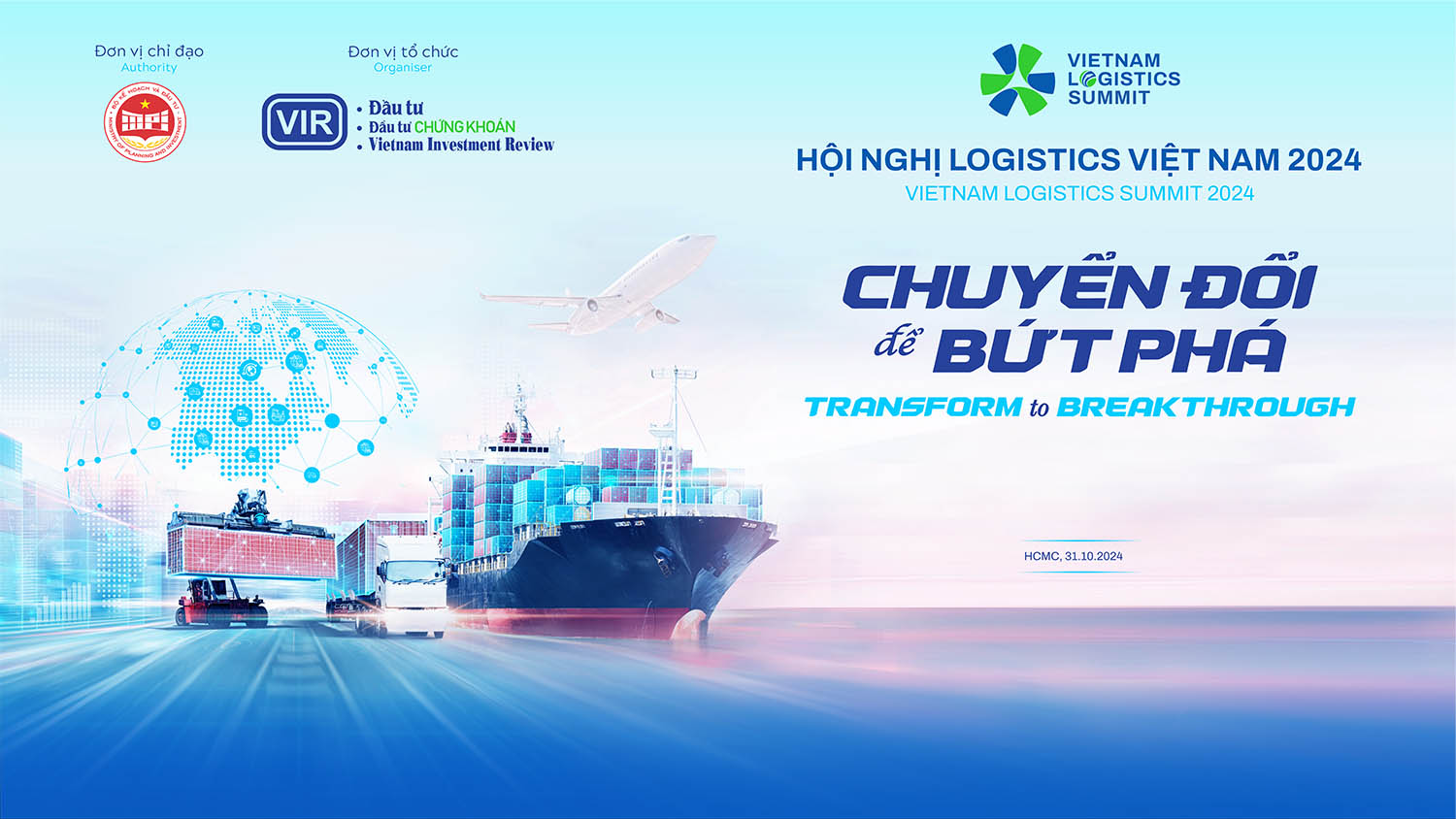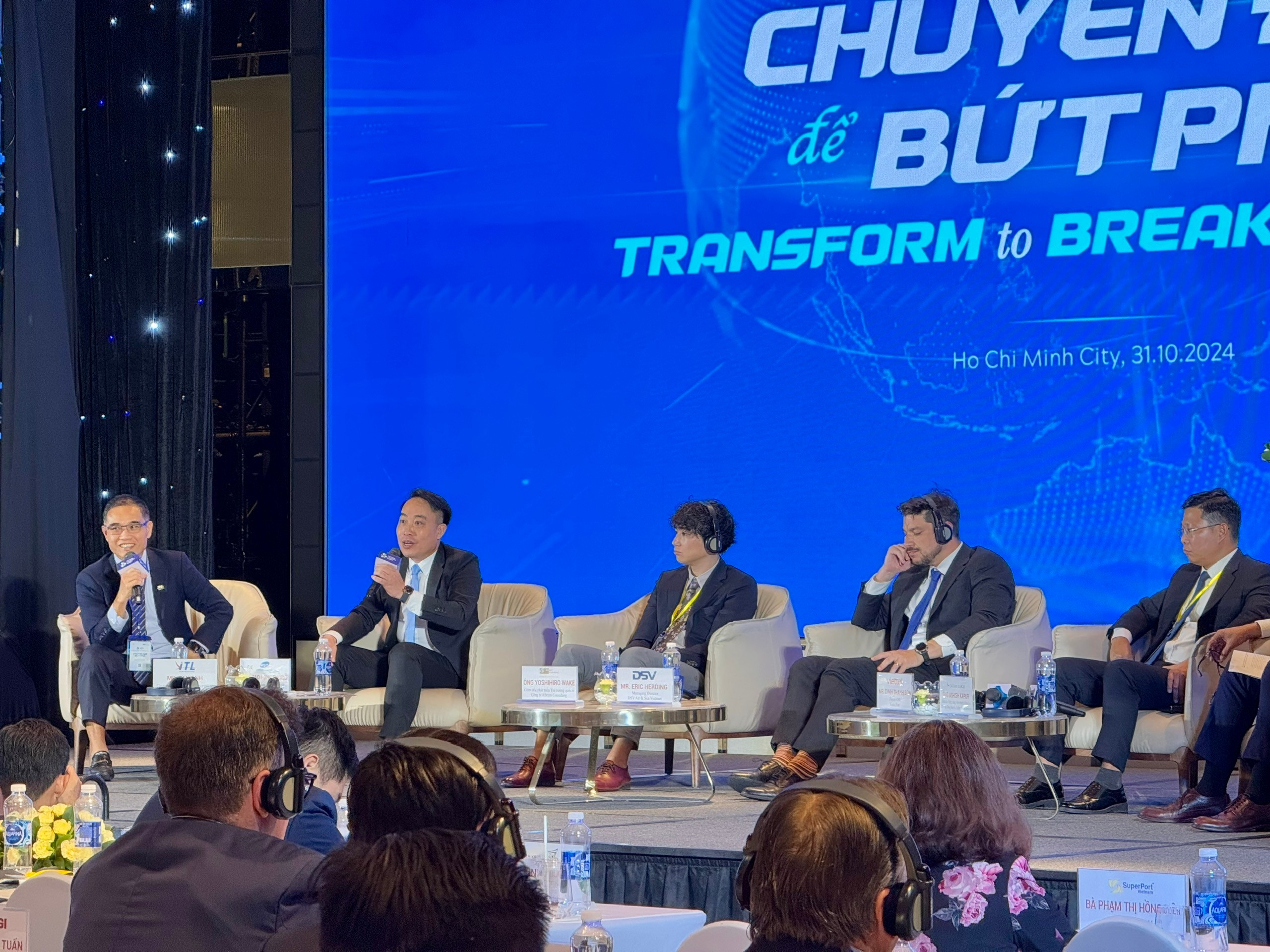


Company’s news
[ {{formatDate('2024-10-31T09:22:16.403Z')}}]

Digital transformation and green transformation are becoming trends applied by many logistics businesses to increase competitiveness, save costs, and clarify origins…
The “key” to sustainable development

According to data from the World Bank (WB), transportation activities in Vietnam release over 50 million tons of CO2 annually, with road transportation accounting for 85% of the total emissions. This figure increases by an average of 6 – 7% each year and is projected to reach 90 million tons of CO2 by 2030.
Therefore, the adoption of digital technology and process optimization not only helps logistics businesses increase productivity and reduce costs but also enables this industry to adapt to green models and sustainable development.
Based on the practical operations of the enterprise, Mr. Ben Anh, CEO of ITL Corporation, believes that digital transformation and green transformation are not only inevitable trends for the global logistics industry but also play an important role in the sustainable development of Vietnam’s logistics.
The representative from ITL Corporation analyzed that, with an average growth rate of 14-16% per year, Vietnam’s logistics industry generates a large number of emissions, especially in the transportation and warehousing sectors. Therefore, the adoption of green logistics solutions, such as using electric vehicles or vehicles with higher efficiency than the Euro 5 standard; optimizing advanced technology in operations, installing solar power systems, combining transportation by trucks and barges… as ITL is doing, not only helps reduce emissions but also increases competitiveness. Customers and international partners are prioritizing the selection of logistics service providers that focus on green logistics and have a complete service ecosystem.
In addition, smart logistics helps improve operational efficiency through the application of technology in supply chain and transportation management, helping to reduce costs, optimize time, and minimize risks.
‘Technologies such as IoT, AI, blockchain, or Big Data help track and manage goods, increase transparency, and enhance customer experience. The combination of green logistics and smart logistics not only contributes to building an efficient supply chain but also creates long-term sustainable value for Vietnam’s logistics industry, expanding opportunities to participate more deeply in the global supply chain,’ Mr. Ben Anh shared.
In particular, for oversized and overweight transportation, which requires absolute safety, accuracy, and adherence to the exact delivery schedule for customers, digital transformation helps businesses calculate the optimal route, manage risks, and promptly meet the transportation requirements of projects.
For this reason, Bao Tin Trading and Logistics One Member Limited Company (PPL) has invested in specialized transportation equipment from Europe to meet the transportation capacity of unique oversized and overweight components, such as offshore wind power foundations, turbines, and wind power components, transformers, etc.
Since the beginning of the year, PPL has invested in 84 SPMT axles (oversized and overweight cargo transportation equipment) that are the most advanced in the world, with the capacity to transport very large cargo components, to anticipate the transportation needs of the renewable energy industry. In addition, PPL has been conducting in-depth training and cooperating in transferring transportation technology.
Similarly, Gemalink proactively applies technology to port operations. Mr. Cao Hong Phong, Deputy General Director of Gemalink, shared that digital transformation is not only a trend in the logistics industry but also a vital factor for businesses to develop sustainably.

According to Mr. Phong, digitalization and automation play a key role, bringing outstanding efficiency, helping to optimize processes, reduce costs, improve service quality, contribute to environmental protection and contribute to the country’s economic development. However, the smart port model requires the participation of all stakeholders in the entire chain of operations and services, such as port operators, customers, partners, suppliers, etc.
“Gemadept in general and Gemalink in particular have made significant progress in applying modern technology to port operations and exploitation. This is not only a tool to digitize transactions and automate processes but also demonstrates the Company’s continuous efforts to increase operational efficiency, bring the highest value to customers and partners, and make practical contributions to the process of digitalizing the economy,” said Mr. Phong.
Many ‘bottlenecks’ still need to be resolved
In an interview with Dau Tu Newspaper, Mr. Do Hoang Phuong, Chairman of the Board cum General Director of PPL Company, stated that process digitization is the foundation for PPL to apply advanced operating technologies, minimizing environmental impact. Thanks to this, the company can better control emissions and optimize resource utilization, reducing unnecessary operating costs. This is an important step forward, not only helping businesses ensure sustainability but also creating added value for customers, especially in green energy projects.
However, Mr. Phuong also shared that, besides the advantages, the dual transformation of businesses is also facing many challenges. For example, with PPL, the biggest challenge is that oversized and overweight cargo projects are not frequent. In addition, investing in technology and specialized transportation vehicles and equipment requires significant financial resources and continuous investment to update new technologies. Meanwhile, infrastructure for oversized and overweight transport vehicles in some localities is still limited.
To attract capital into green logistics and smart logistics, according to Mr. Ben Anh, it is necessary to build a clear and attractive legal and preferential policy environment. The government can implement policies to support tax and finance for businesses investing in green infrastructure and smart technology. For example, reducing/exempting import taxes for high-tech equipment and environmentally friendly means of transport. The implementation of policies to support business innovation, along with promoting digital transformation, will be important factors to attract investment.
In addition, Vietnam needs to promote the development of synchronous infrastructure, because infrastructure limitations (overloaded airports, transportation heavily dependent on roads…) also negatively impact investment decisions. Public-private partnerships (PPPs) are a potential model for attracting international capital when foreign investors see opportunities to develop green and modern logistics infrastructure in Vietnam.
Finally, raising awareness about the importance of green logistics and smart logistics within the business community and society will create pressure for businesses to change, thereby stimulating demand and investment in this sector. These efforts not only help reduce costs and enhance competitiveness but also open up international cooperation opportunities in the field of green logistics.
Source: Báo Đầu Tư